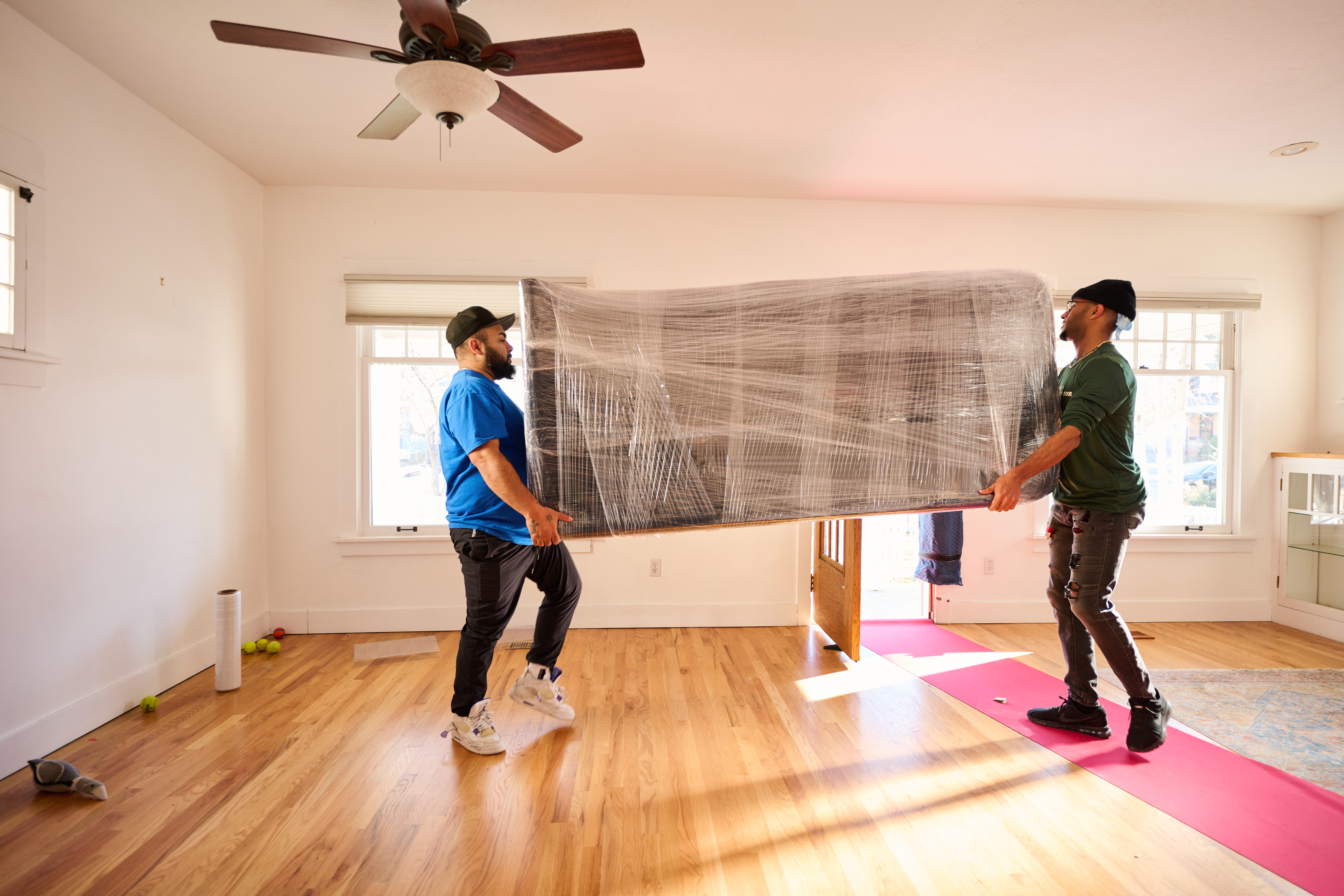
The cost range for renting a moving truck varies widely, so what can you expect to pay for your move? This cost guide breaks down all of the factors.
With support, research, and practical tips, you can successfully move your senior loved one into their new home


Moving your senior loved one into a new home isn’t something that many people think about until the time comes. It’s natural to have questions about the process, especially how to get ready for the move. Use this guide for moving seniors to help you plan each step of the process, from research to move-in day.

Moving into a new home is a mix of excitement and sadness for most people, but the change can hit older adults particularly hard if they don’t feel like their feelings are heard or don’t have choices in the planning process—starting with the decision to relocate. Although every senior’s situation is different, senior support organizations generally recommend moving into an accessible home before cognition and mobility decline. This proactive step allows them to age in place longer.
You can ensure a positive outcome by constantly communicating with your senior loved one about the decision to move, the right housing choice, and moving day details. The transition could be pleasant and beneficial for the whole family if you talk about issues that pop up.
The decision to move your senior is challenging, but the more you know about the process, the more information you can share with them and ease their concerns. The good news is that plenty of organizations and companies specialize in this transition, including local nonprofits and moving specialists. In addition, some local moving companies offer free or discounted services for seniors.
These resources could help you find more support about the decision to move your senior, whether it's into assisted living or an independent living community.
American Association of Retired Persons (AARP)
Eldercare Locator
National Association of Senior Move Managers (NASMM)
A senior move manager is a trained and certified organizer who can help older adults transition into their new home. They offer services ranging from full-service, concierge-style moves to hourly help with planning, organizing, and consulting.
The best senior move managers are companions during the move and reduce the overall stress and workloads for you and your senior. Keep in mind that you can expect to pay $1,500 to $5,000 for this personalized service.
Finding the perfect housing fit could take some time, depending on your senior’s priorities. Listen to their needs and discuss their preferences with a senior care manager.
These are some of the features to consider:
Level of medical care needed on site
Socializing opportunities
Amount of planned activities on and off the property
Dining options
Room or apartment amenities and layout
Decorating guidelines, such as lighting changes, painting, mounted TVs, artwork
Furniture options, including bring-your-own or all-inclusive
Visit your loved one’s new home multiple times before moving day. You can schedule in-person visits and request to see an example of their new apartment, room, or home. The familiarity will help your senior envision themselves enjoying living there. You can also request a floor plan, videos, and pictures to reference later.
These tools are helpful for planning where your senior’s favorite lounge chair and cherished book collection will fit the best. Then, after seeing the new home’s layout, you can try to replicate the arrangements that bring your loved one joy, like a dining room table with a window view or a comfy corner chair to read in.

It’s essential to discuss with your senior how they would like their new home to look and feel. Would they like to recreate features of their old home and enjoy familiarity? For example, arranging artwork, photographs, and shelves filled with personal items in a familiar way is comforting.
Or would they prefer to start fresh and buy the new velvet sofa they’ve always wanted? Make sure you leave space for new items your senior would enjoy for their new phase in life. Before moving day, check with the housing community about the move-in process, like where you should park moving trucks and the elevator locations.
Whether or not you hire a senior move manager to help with the move, start early and give you and your senior plenty of time to prepare. A rushed declutter process adds to the moving discomfort and sense of loss.
Since many people associate their home with their identity, it can be challenging to get rid of items with fond memories or from significant milestones. Talk with your senior about their preferred ways to clean out their belongings. Sometimes, it helps them purge, knowing their items will benefit others.
Discuss these downsizing options with your loved one:
First, talk to your senior move manager. They have a vast network of worthwhile charities to donate your senior’s items.
Many organizations will pick up most household goods and transfer them into local charity stores. Then, come tax time, your senior might get a deduction.
If your senior has special collections, consider contributing helpful items to community groups in the area like Girl and Boy Scouts, after-school programs, and religious organizations.
Ensure valuable memorabilia gets its due, and talk to professional collectors about storing, donating, or selling the collection.
A professional estate sale company could solve the problem of a home filled with marketable items. Estate sale professionals work on commission, so they’ll work hard to market and sell your senior’s household items. The income could help your senior buy new things for their new home.
Another option is to host a yard sale to help declutter your senior’s home and give items a new home. Make plans for the decluttering and pricing process, and don’t forget to schedule a donation pick-up for the remaining items. A yard sale could also be a way for your senior to say goodbye to friends and neighbors.
Make move-in day a family affair with multiple people helping your senior. The camaraderie will lighten the load and mood if your loved one still feels uneasy about the change.
Since you’ve planned out the new furniture placement, you should have a good idea of what to expect inside, so plan to unload the oversized furniture items first. It’s easier to bring in the bed, dresser, and living room furniture when the room is empty. Once you’ve arranged the big things, the rest of the items should fall into place.
Plan to stay all day to unpack and relax with your loved one. Your senior will feel more at home with every photo and knick-knack in place. Plus, you don’t want them to worry about unpacked boxes. Before you leave, make plans to visit soon with more relatives or friends if your senior prefers the company.
From average costs to expert advice, get all the answers you need to get your job done.

The cost range for renting a moving truck varies widely, so what can you expect to pay for your move? This cost guide breaks down all of the factors.

It’s easy to determine your shipping furniture cost. Learn how to measure your pieces and choose a shipper that works with your budget.

The cost to rent a trailer depends on its size and type and how far you’re traveling with it. This guide compares trailer options and their prices.

Packing clothes for a move can be stressful, but you can make the experience more pleasant by having a plan. Learn how to pack clothes for moving.

Moving out of state? Use this checklist to prepare for a successful move.

Learn what to look for before you move into a new home as well as common signs of damage with our complete move-in inspection checklist.